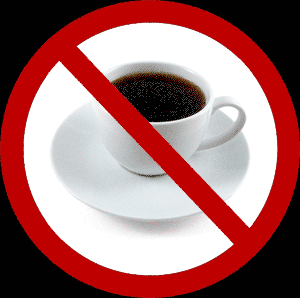Source: Thailand Medical News Oct 28, 2019 6 years, 2 months, 1 week, 4 days, 2 hours, 22 minutes ago
A study published in the American Journal Of Medicine conducted jointly by researchers from Beth Israel Deaconess Medical Center (BIDMC), Brigham and Women’s Hospital and the Harvard T.H. Chan School of Public Health (HSPH) concludes that drinking too much
coffee is linked with an increased risk of getting a
migraine.

The medical researchers found that for those who experience
migraines, one to two servings of caffeinated drinks, such as
coffee, cola and tea, were not associated with headaches on that day. However, drinking three or more were associated with higher odds of a
migraine headache on the same day, or the following day, the study suggests.
Also the concentration of the caffeine in the
coffee was also a critical factor as in some cases, one serving of concentrated expresso was sufficient to trigger a
migraine attack.
A
migraine is a “moderate or severe headache felt as a throbbing pain on one side of the head”. The
Migraine Research (MRF) states that
migraine is the third most prevalent illness in the world and affects approximately 1.04 billion adults worldwide. Women are also more at prone to get
migraine compared to men.
In the cohort study, 98 adults completed electronic diaries every morning and every evening for at least six weeks. Every day, they reported the total servings of caffeinated
coffee, tea, soft and energy drinks they consumed. The participants also filled out twice daily headache reports detailing the onset, duration, intensity and medications used for
migraines since the previous diary entry.
Those in the study also detailed information about other common
migraine triggers, including medication use, alcoholic beverage intake, activity levels, depressive symptoms, psychological stress, sleep patterns and menstrual cycles.
The medical researchers compared an individual’s incidence of
migraines on days with
coffee beverage intake to their incidence of
migraines on days when they had no caffeinated drinks. This eliminated the potential for
factors such as sex, age, and other individual demographic, behavioural and environmental factors to confound the data.
The data showed that those who had more than two
coffee drinks had a 27 per cent chance of a
migraine on that day.
Baseline data indicated that participants typically experienced an average of five headaches per month and 66 per cent of them usually consumed one to two servings of caffeinated drinks daily.
Dr Elizabeth Mostofsky , lead investigator commented in a phone interview with
Thailand Medical News “Caffeine’s impact depends both on dose and on frequency, but because there have been few prospective studies on the immediate risk of
migraine headaches following caffeinated beverage intake, there is limited evidence to formulate dietary recommendations for people with
migraines.”
Of late, many neutral medical studies also show that
coffee drinking is detrimental to one’s health in a variety of ways. There are however many other studies are directly or indirectly funded by entities with a vested interests that try to dispel these actual medical studies and state that
coffee has health benefits.
Reference: Prospective Cohort Study of Caffeinated Beverage Intake as a Potential Trigger of Headaches among Migraineurs. Elizabeth Mostofsky, Murray A. Mittleman, MD, DrPH, Catherine Buettner, MD, Wenyuan Li, ScD, Suzanne M. Bertisch, MDc,e,f , DOI: https://doi.org/10.1016/j.amjmed.2019.02.015 https://www.amjmed.com/article/S0002-9343(19)30210-4/fulltext
